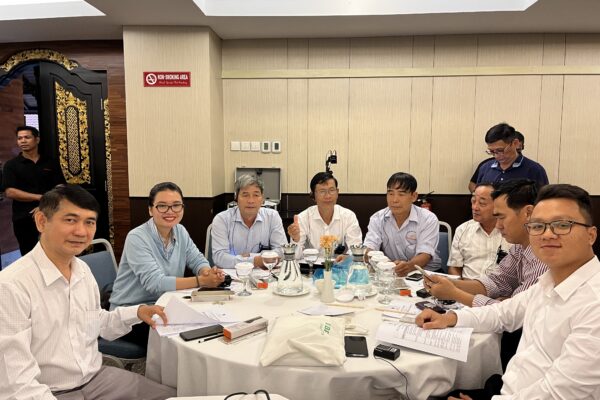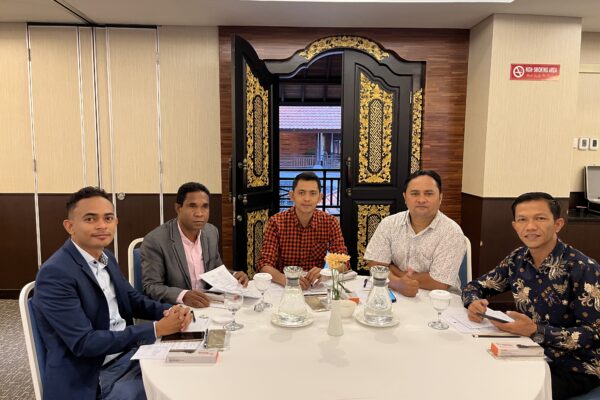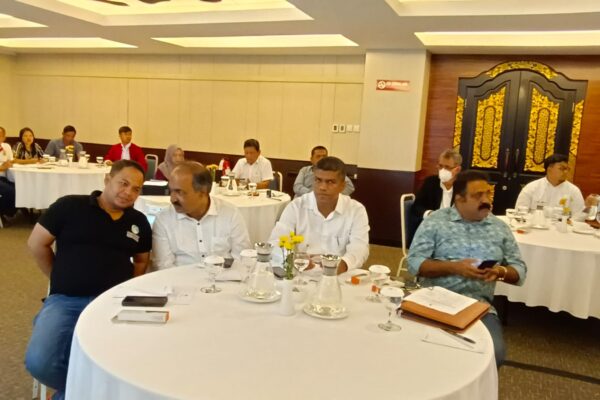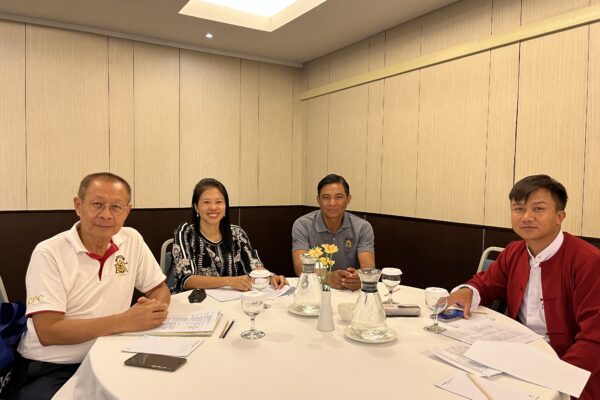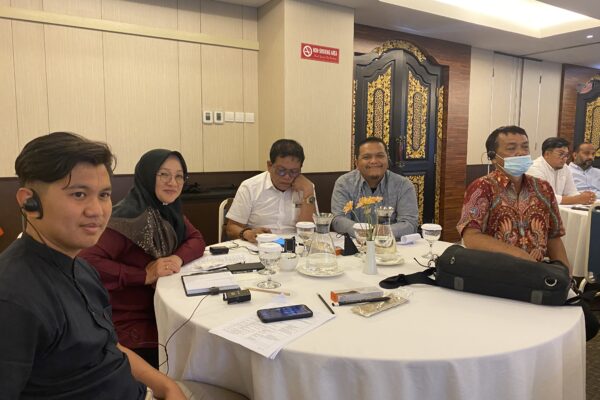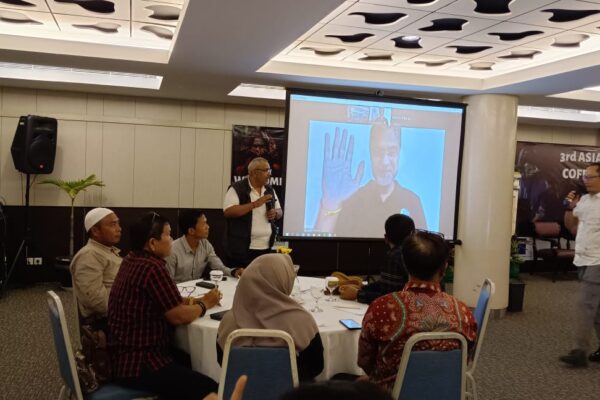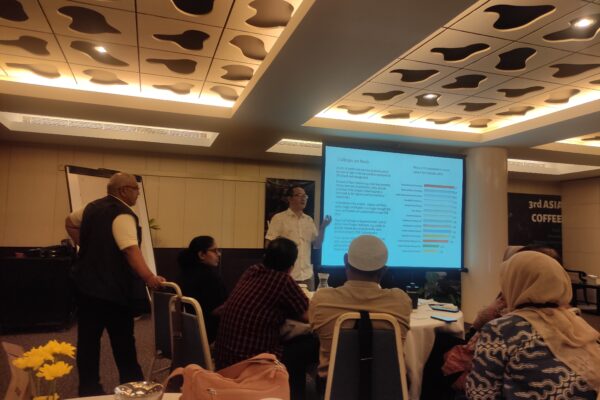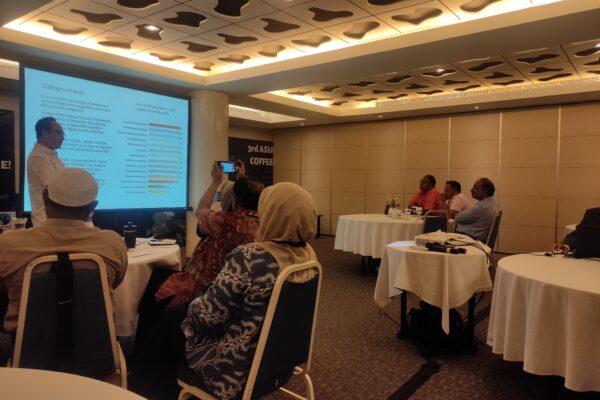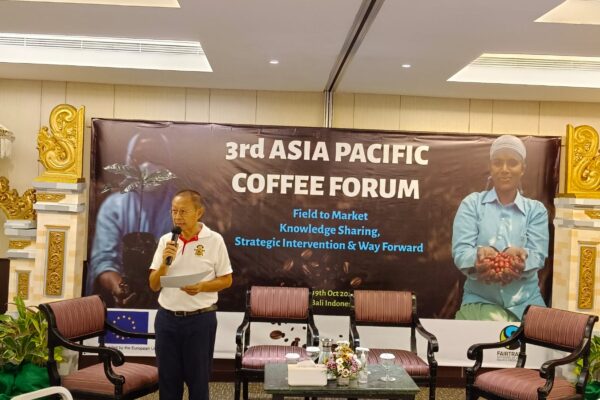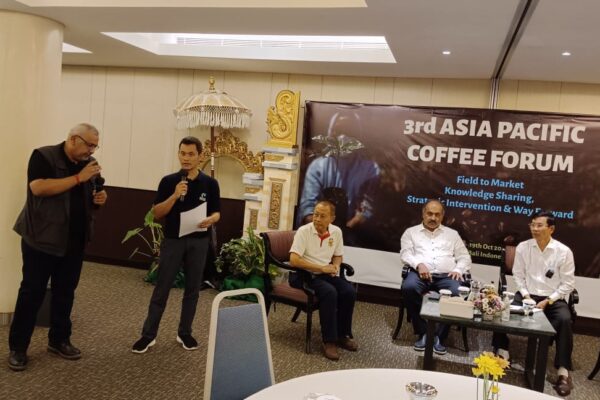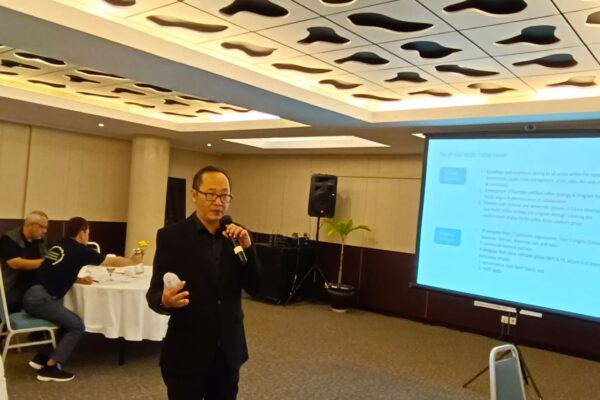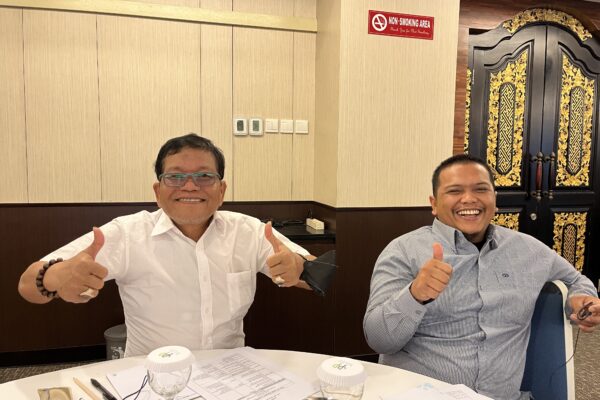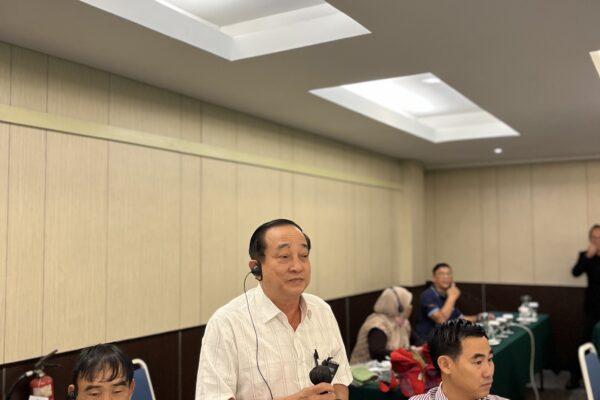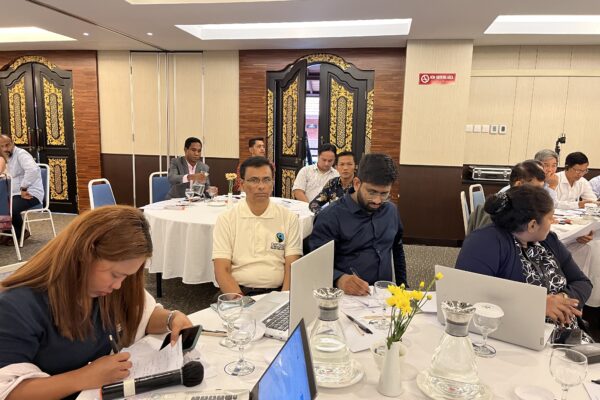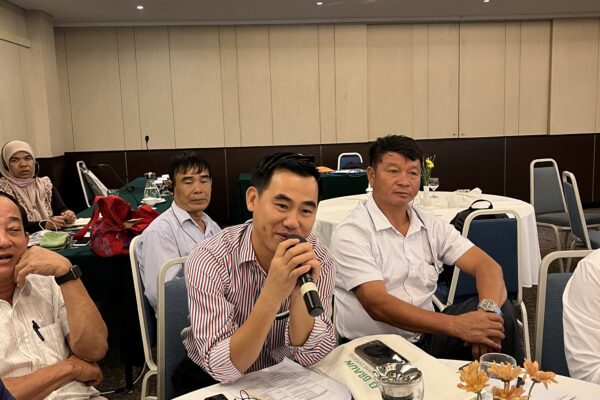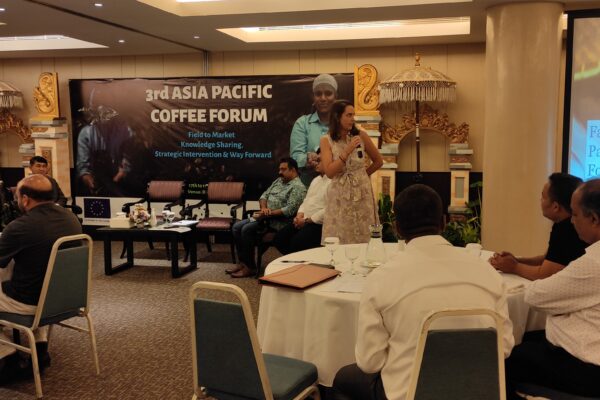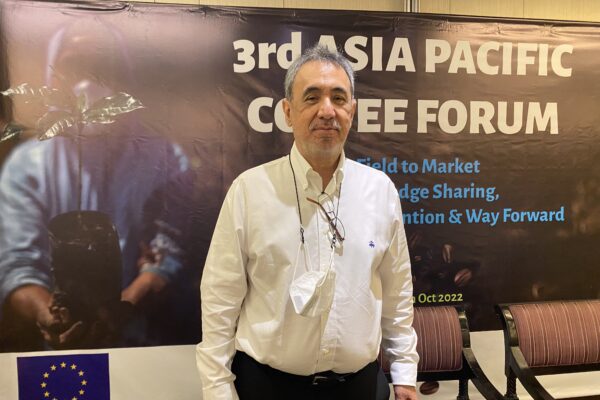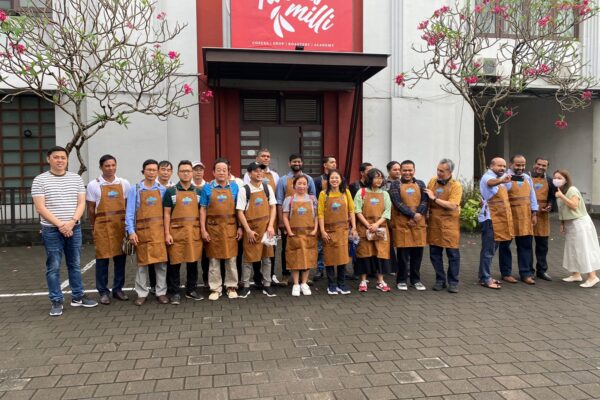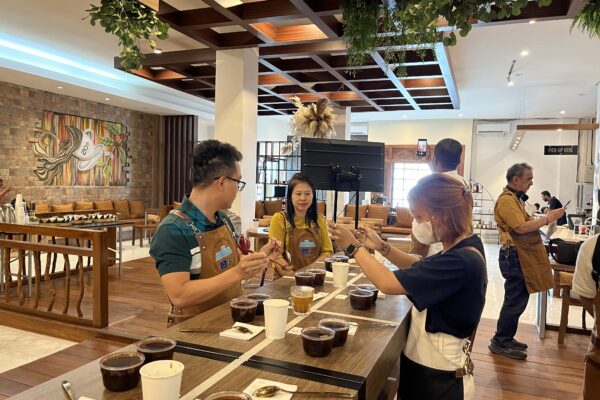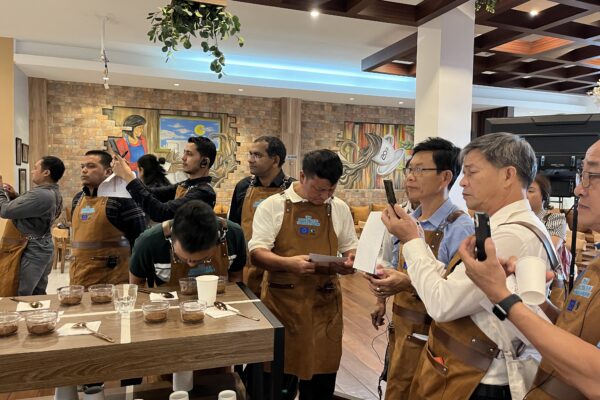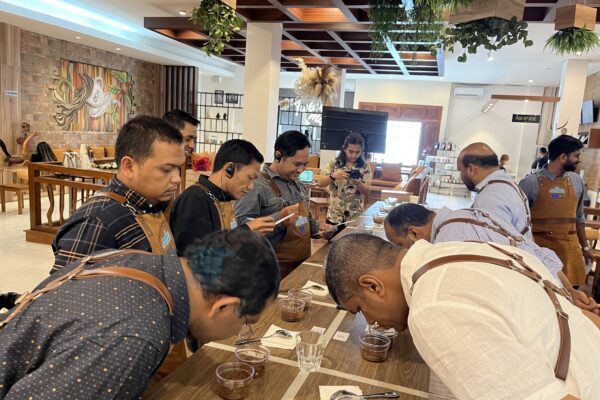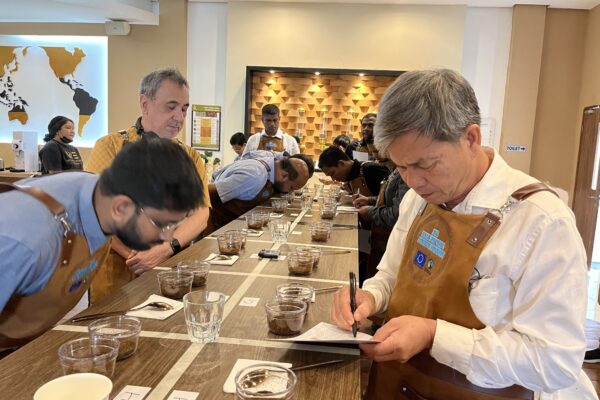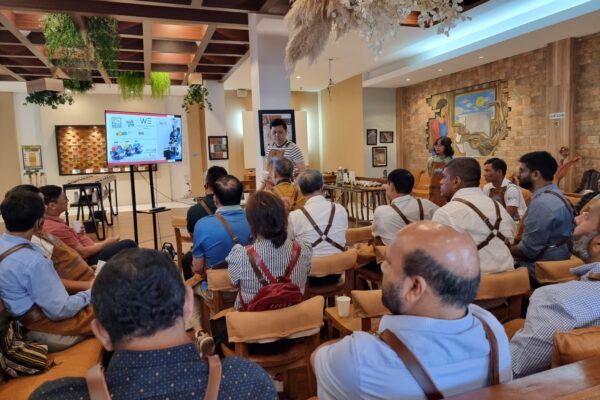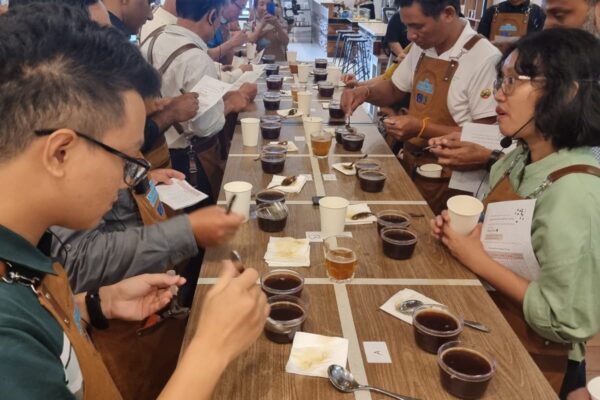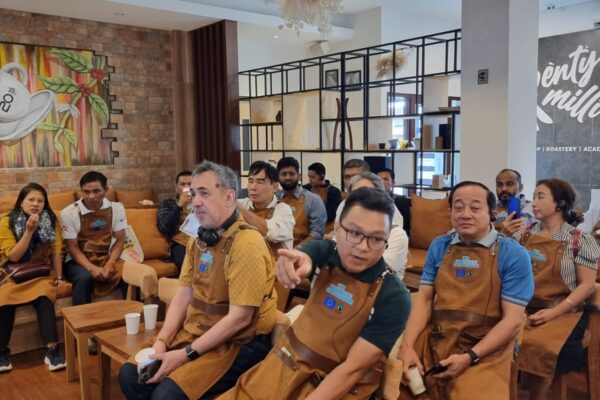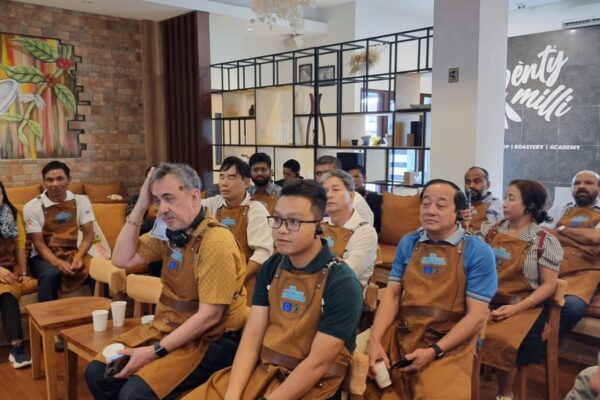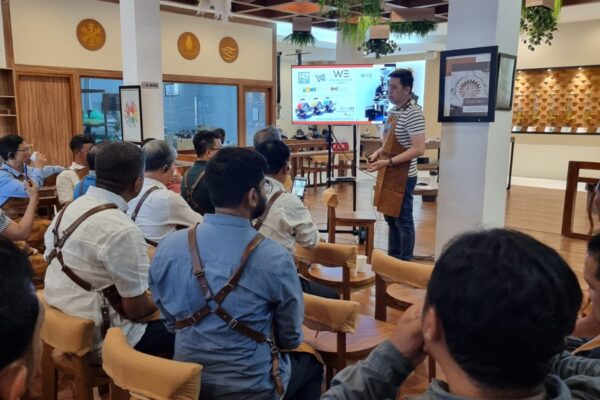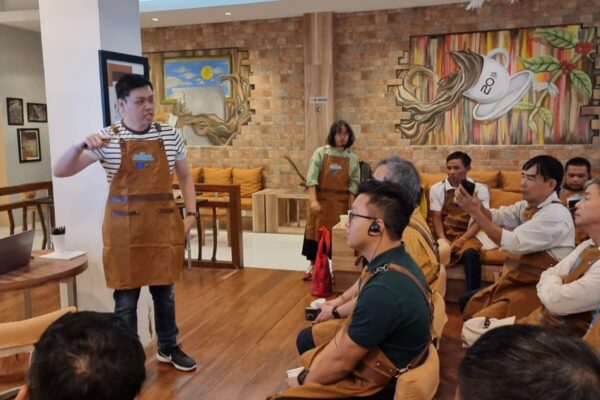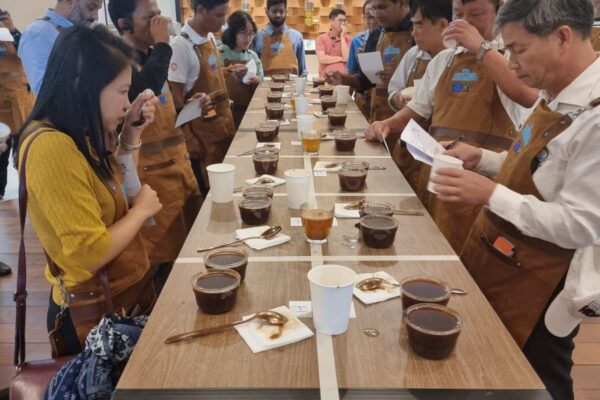 Coffee is one of the most important commodities of Fairtrade producer organisations in Asia and Pacific regions. It provides economic benefits at each step of the value chain that links growers to consumers thereby contributing to the economies of both exporting and importing countries.
Coffee is one of the most important commodities of Fairtrade producer organisations in Asia and Pacific regions. It provides economic benefits at each step of the value chain that links growers to consumers thereby contributing to the economies of both exporting and importing countries.
Fairtrade Network of Asia and Pacific Producers currently has 68 Fairtrade certified coffee producer organisations comprising over 81000 individual farmer households as their members who produce over 55K tons of ready-to-export arabica and robusta green bean annually.
As the pandemic of COVID-19 is still felt by coffee growers worldwide, it has become an expensive commodity due to the increase in the cost of production, disruption in logistics and shipping, and – on some levels – also contributing to the current high inflation rate in several main Fairtrade coffee export destinations such as North America, Germany, UK, and wider Europe.
Worldwide, some 2.25 billion cups of coffee are consumed every day. Yet only a small portion of those volumes are currently traded under Fairtrade terms. With the increasing industry demands for quality and flavour profiles, full traceability, and environmental and climate responsibility, it takes fully empowered and well-structured producer organizations to best respond and regain a larger share of the market.
To respond to the current complex changes that might have an impact on the future of the Fairtrade coffee supply chain from the origins of Asia and Pacific regions, the 3rd Asia Pacific Coffee Forum was organized by Fairtrade NAPP with the funding support of the European Union. The meeting was organized in Bali, Indonesia from 17th to 18th October 2022 and attended by 51 delegates from 10 countries, representing producers organization, processors and traders, National Fairtrade organizations, NAPP executives, and NAPP board members.
The main objectives of the forum were to:
- Strengthen Asia and Pacific Coffee forum through knowledge and experience sharing on areas of production, value addition, living income strategy, and market development
- Designing Fairtrade coffee program for Asia and Pacific region that aligns with global and regional strategy
- Create Asia Pacific Coffee Advisory Group for current and future NAPP coffee strategy and program, including effectiveness of the Asia Pacific Coffee Forum
The meeting convened with an opening message from Sanjeet Khurana, CEO- Fairtrade NAPP followed by recognition of the participants from respective countries and the presence of NAPP Board of Directors headed by its Chairperson, Pravakar Meher.
“We need to learn from each other, we need to build on our strength together without compromising the basic principles of Fairtrade whether we remain niche or move towards the mainstream market.
-Sanjeet Khurana, NAPP CEO on the challenges faced by producers and commercial partners.
The NAPP Board of directors continues to provide guidance in the fulfillment of the NAPP mandate as an organ of representation and voices of producers and workers in the Asia and Pacific region.

Pravakar Meher; Chairperson- Fairtrade NAPP Board, shared about the NAPP governance restructuring process with emphasis on the creation of Regional Conferences representing the NAPP members from 3 different regions: South East Asia, Central Asia, and South Asia. The Fairtrade Coffee Forum initiative in bringing specific challenges, opportunities, and trends in coffee producers is the first step to creating meaningful interaction and partnership between all actors of the Fairtrade system.
The opening session was followed by a presentation from Monika Firl, Fairtrade International Global Product Manager for Coffee on the overview of the commercial aspect of Fairtrade coffee that enable the participants to have a broad understanding of the position of Fairtrade-certified coffee in the global coffee industry. The presentation included brief information on origins, available volume, range of quality, market destination, consumer products, and the perception of consumers and commercials on Fairtrade coffee.
“It is very important to build more dialogue with the coffee industry. It is unthinkable that farmers and farmer organizations to sell their product at a lower price while the production cost is high and farmers are at the forefront of climate change issues.
The future of the coffee industry depends on the well-being of coffee farmers!
-Monika Firl- Fairtrade International Global Product Manager for Coffee
To achieve the above outcomes, the forum was conducted in 4 sessions
- Challenges and opportunities experienced by producer organisations in the production and sale of Fairtrade coffee
Representatives of producer organisations from 06 coffee origins: Indonesia, India, Vietnam, Lao, Timor Leste, and Myanmar presented to the forum on their coffee production challenges and opportunities, market share, and Fairtrade premium impact projects.
“Our cooperative use our FT Premium to support the coffee production inputs of our members, planting of fruit-bearing trees as another source of income and build diversity in our farms, build a drip irrigation system to save in labour cost and responsible use of water, conduct capability training for members on effective coffee bean harvesting and how to improve post-harvest, provide coffee roasting machine to sell coffee products in the domestic market and collaborate with NAPP and other people in our community to promote fair trade.
Nguyen Huu Ha, Thuan An Cooperative, Vietnam
While it was evident that impacts generated through the premium projects were aiding to improve quality, productivity, and several social and environmental sustainability initiatives, there were other challenges that needed major intervention and support from Fairtrade. Some of the challenges identified were more production and fewer sales, the higher market price in comparison to Fairtrade minimum price, lower yield, increased cost of production, high dependency on Fairtrade premium to cover operational expenses, high dependency on commercial partners for access to working capital, and challenges to pursue stronger member commitment and participation.

“We need to balance the minimum price and the buyer’s expected price. Both of them must be available and get audited.
Raghavendra Shastry, Malenadu Savayava Krishi Parivar, India
“Permata Gayo has a production capacity of 600-700 kg green beans per hectare. 99% of this production is for export. Amerika and Europe is the biggest market of Indonesia FT coffee. There is growing demand for green beans in countries like China, Middle-east and Australia. The coffee consumption has 2% growth in the last year. Coffee farmers rely on the export market because the domestic market is underdeveloped. However, Indonesia imports Arabica from Honduras, Latin America (70,000MT) for domestic consumption. FT Premium of producers goes to Fairtrade standard and certification. Cost is doubled today due to inflation.
Armia Ahmad KPG
- Challenges and opportunities experienced by commercial partners
03 exporter partners from Indonesia, Vietnam, and India provided insights on exporters’ concerns & challenges in developing and maintaining their current Fairtrade supply chain.
Some of the trends which were identified as important for future development were: (1) trend on increased demand for domestic and soluble coffee, also (2) more demand from Far-east and South to South. (3) Micro-lot & specialty coffee likely has more demand as well and (4) the need to have geographical Indications tags and organic certified products.
In addition, 02 importers who attended the meeting discussed the possibility of a future sourcing plan: Louis Dreyfus spoke about their current supply chain, their plan to source Fairtrade, and the potential for future collaboration. UCC Philippines provided brief information about the coffee origin from the Philippines which is currently not yet Fairtrade certified but has potential for future development.
- Market trend, challenges, and forecasts by Global Coffee Manager and National Fairtrade Organisations
The third session included market updates from National Fairtrade Marketing organizations responsible for promoting Fairtrade in their respective regions. NFOs from Germany, Australia, and New Zealand, Canada, U.K. America, France, and Korea provided information about current market trends and challenges, Fairtrade awareness and market share, coffee origin, and supply chain. The major challenges discussed were high price inflation forcing commercial partners to conduct price negotiations and budget cuts until the end of the year, the ongoing cost of the living crisis currently limiting consumer spending decisions, more competition with other brands, supply chain disruption post-COVID-19, and small market share in many countries. Recommendations were made to increase the showcasing of Fairtrade premium impacts, quality improvement, and sustainable production with more focus on ecological sustainability, climate change, and low carbon emission.
“Story telling. Showing the difference. Link to origin!
We have to support licensees buying Fairtrade. We have to support the corporate social responsibility team and purchasing team of these companies in their aim to source sustainably. We need to provide them with the materials for marketing and campaigns in promoting Fairtrade products. The third Asia pacific coffee forum was a great opportunity to bring cooperatives from Asia pacific and commercial partners together and to strengthen and identify areas of collaboration. As we face several global crises like the climate crisis, covid crisis and strong price rises, it is more important than ever, to come together and to share realities and opportunities. Furthermore, for me, it was a great opportunity to listen and to learn from the cooperatives and partners. I take these impressions to the German market!
-Lara Bethlehem, Fairtrade Germany
Alongside the challenges, some of the opportunities identified across the NFO countries included a high level of awareness of the Fairtrade brand among consumers and buyers, growing interest for sustainably produced and sourced coffee, increase in demand for ready-to-drink products, micro-lots and high-quality premium coffee, post-pandemic recovery on Out of Home (OHH) consumption, push on increase local coffee roasting production using organic and climate neutral coffee, (5) increasing importance of green bean traceability at major brands.
“With awareness people will want to request more products on the shelves, we will have growth by generic changes from the ground up.”
Michael Dall, Commercial Partnership Manager, Fairtrade ANZ
- The last session consisted of 03 cluster working groups
The first cluster led discussions and recommendations regarding improving the supply chain and access to market. It was participated by 23 participants, consisting of 10 SPO representatives, 3 commercial partners, NFOs, Internal NAPP, and the NAPP board chair.
The Second cluster led discussions and proposed recommendations on how to improve NAPP services in areas of (1) access to the market; (2) standard & certification services; (3) Improving farm revenue at farmer households, and (4) improving planning and impact on Fairtrade premium projects. It was participated by 15 delegates, representing SPO, internal NAPP, and the NAPP board.
The Third cluster, brought results from 1st & 2nd cluster working groups, to decide on (1) NAPP coffee program priorities 2023-2026, (2) decision on the establishment of Asia Pacific coffee advisory group, and (3) decision on next 4th Asia Pacific Coffee forum.

“NAPP coffee forum gave hope to stakeholders by raising a progressive approach towards sustainability! We, producers, look forward to being the voice at International forums to discuss the key issues including Living income and climate change which are the Major challenges we face in the Fairtrade coffee sector. we appreciate the management team from Indonesia for hosting such workshops including cupping in a unique way!
Bijumon Kurian, Manacardu social service society, India, NAPP Board Member.
Summary of the decisions of the Cluster Groups:
- Decisions on NAPP coffee strategy / priority for 2023-2026 program intervention are:
- Improve access to market and commercial development at the SPOs
- Improve farm revenue at households level
- Improve on forest protection and other environmental protection initiatives. This include develop initiative in climate resilience
- Continue and strengthen social compliance programs intervention focusing on women and youth empowerment
- Improve Fairtrade premium impact and data management
- The forum has agree to initiate and support the development of Asia Pacific Coffee Forum Advisory Group. The APAC advisory group is a multi-stakeholder group, acting in an advisory capacity for Asia Pacific Fairtrade Coffee program strategy development, and subsequent coffee-related work activity, providing innovative thought leadership, country or origin perspective, and stakeholder representation through a process that is designed to be both inclusive and democratic.
- The forum has agreed on the next 4th Asia Pacific Coffee Forum. The 4th Forum shall be conducted in 2026 with preference to be held in Vietnam with other options for Chiang Mai, Thailand, or in Karnataka, India.
Alongside the network meeting, cupping quality training was also provided to 30 SPO representatives by Wiliam Edison from WE Coffee Roaster via in-class training in basic quality sensory analysis (cupping exercise) and a roastery visit. 08 green bean samples of SPOs were used for the training.


